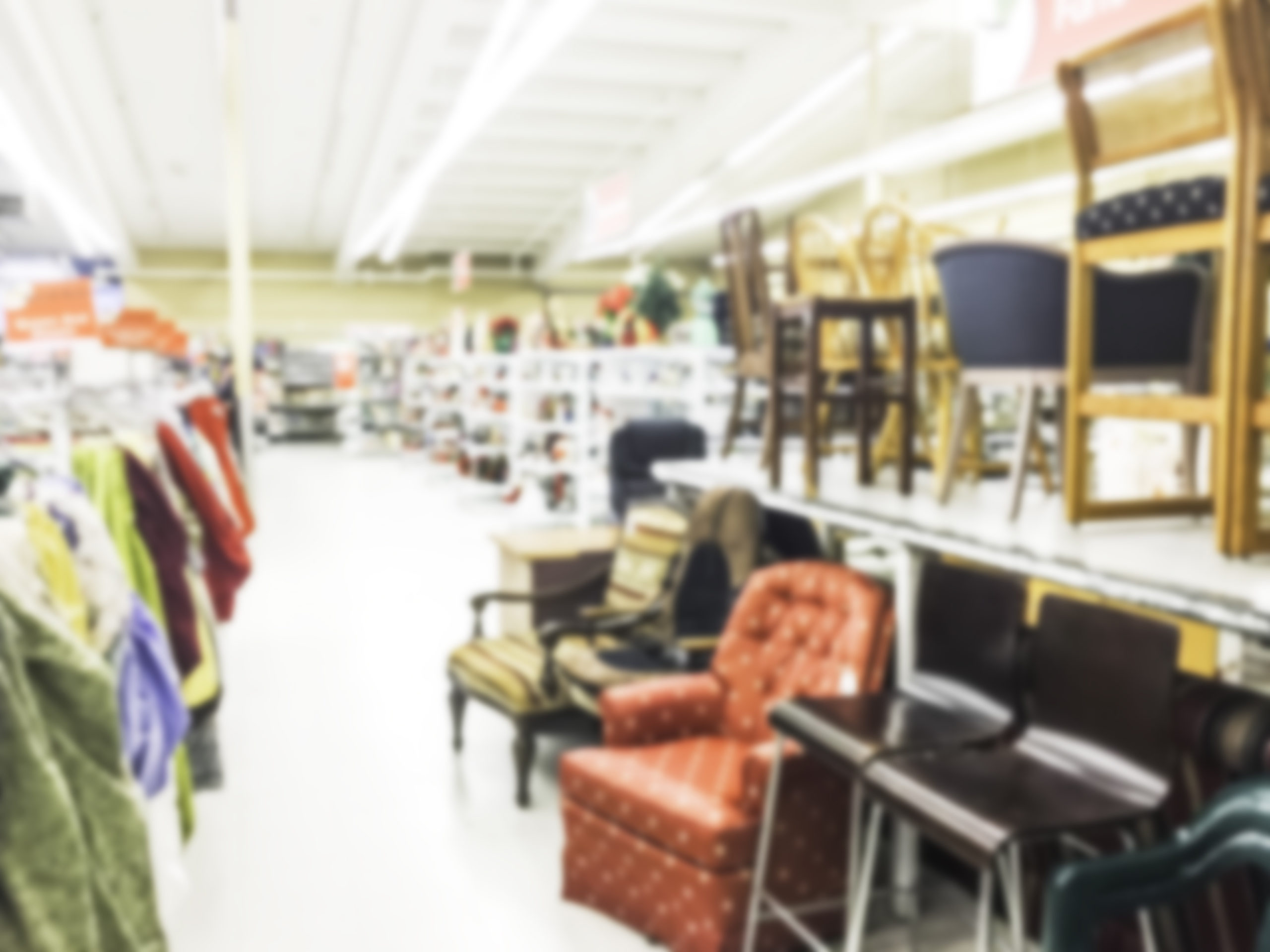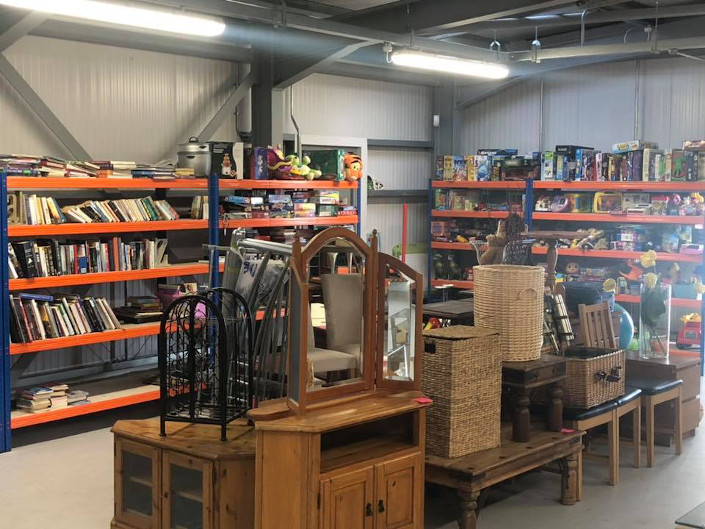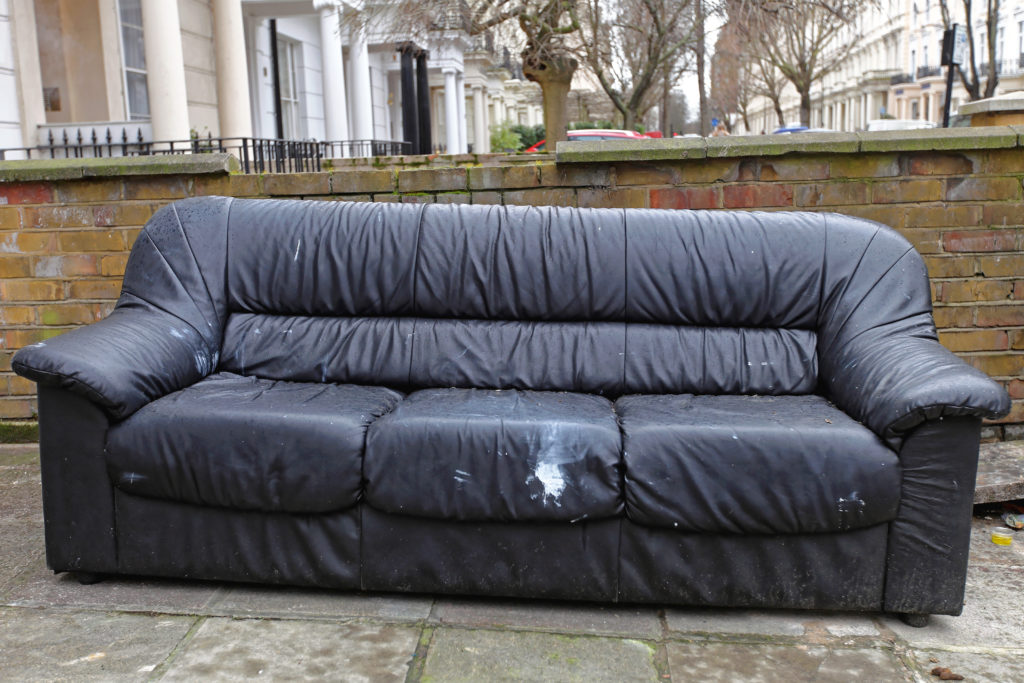The Agency has written to all local authorities with the latest advice. The Scottish Environmental Protection Agency (SEPA) says it intends to follow the Agency’s lead, though it has acknowledged concerns about infrastructure and capacity.
POPs “remain intact in the environment for long periods,” the Agency says, and, if not disposed of properly, “become widely distributed geographically.”
In the Agency’s letter, seen by letsrecycle.com, local authorities are warned that, effective immediately, waste upholstered domestic seating containing POPs must not be landfilled, mixed with other non-POPs-containing wastes, reused or recycled.
The furniture affected includes all upholstered waste sofas, home office chairs and bean bags, for example. These items must be sent for incineration or used as a fuel in, for example, a cement kiln.
The Agency says it will undertake an assessment of compliance “across the sector” from 1 January 2023.
Reuse
Councils will now have to meet a range of criteria for items of upholstered domestic seating to be considered reusable. This includes proving that the item will be reused for the same purpose for which it was designed and that the previous holder intended for the item to be reused.

When the issue first came to light, sector experts initially estimated that only around 30% of sofas and soft furnishings would be impacted, as many UK manufacturers of sofas stopped using materials containing POPs by 2011 (see letsrecycle.com story).
However, the Agency’s default position now is that all councils should assume upholstered waste domestic seating contains POPs and must be incinerated.
Examples
Waste items which fall under the guidance include sofas, sofa beds, armchairs, kitchen and dining room chairs, stools and foot stools, home office chairs, futons, bean bags, floor, and sofa cushions.
The guidance also covers all items with any part made of or containing leather, synthetic leather, other fabric or foam.
The Agency’s letter explains that if an item of domestic seating waste is upholstered, “you should assume that it contains POPs, and manage it as a POPs waste, unless you can demonstrate that it does not contain POPs.”
Products not considered ‘domestic seating’ for the purposes of the guidance include:
- Items that are not upholstered (for example a wooden chair without a cushioned or textile back, seat or arms)
- Deckchairs, mattresses, curtains, blinds, and beds
- Wastes from the manufacture of new domestic seating that are known not to contain POPs
Landfill operators will now be expected to include “appropriate checks” in their waste acceptance procedures to ensure waste does not include soft furnishings.
HWRCs
If a householder delivers an item to the reuse area of an HWRC a council can assume that their intention is for the item to be reused. Therefore, it will not normally be considered waste.

Staff at the HWRC may engage with householders to discuss whether the item could be taken to the reuse area before it is deposited in the waste area, the Agency says.
Once an item has been deposited in a waste area of the site it would normally be classified as waste. Additional checks would be needed to demonstrate that no POPs are present before the item can be legally reused, the Agency says.
If the HWRC has no reuse area, then the items delivered there by the householder would normally be classified as waste.
Checks
According to the Agency, an item is only eligible to not become waste if the following conditions are met:
- It is reused for the same purpose for which it was designed
- The previous holder intended for it to be reused
- No repair, or no more than minor repair, is required when the item is transferred from the previous holder to the new holder, and the previous holder knows this
- Any necessary repair is carried out
- The use is lawful (for example, it has the appropriate fire safety labels)
- It is not managed in a way that indicates that it is waste. For example, the item is not transported or stored in a way that could cause it to be damaged, such as being placed in a skip with waste items
Scotland
During a meeting with stakeholders this month, SEPA said it intended to follow the Agency’s lead. However, the environmental regulator said it was still gathering data on tonnages and the sources of the material currently being disposed of.
SEPA is said to have acknowledged that there are challenges around infrastructure and capacity to meet these new requirements, although the regulations are already set in law.
An insider said the meeting with SEPA was used to “better understand the practicalities of managing POPs soft furnishings waste and to help develop the approach for Scotland, with further industry engagement to be scheduled.”
SEPA also noted at the meeting that the scope of the guidance could extend to include mattresses, carpets, curtains and other similar materials, the insider said, dependent on “perceived risk”.
Related link
Environment Agency POPs letter










Subscribe for free